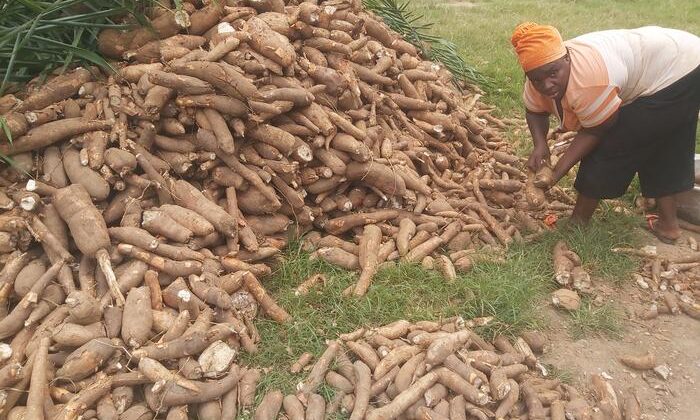
Aston University is to help one of the world’s largest cassava processers develop a sustainable and faster way to dry its crops. The university has entered a knowledge transfer partnership (KTP) with the Tropical Starch Company, Ghana’s leading cassava-processing business.
According to the UN Food and Agriculture Organization, the country is the world’s second-largest consumer of cassava and the crop contributes to almost a quarter of Ghana’s agricultural gross domestic product.
Cassava is difficult to process as it needs to be thoroughly cleaned, mashed, sieved, dried and packaged. The Tropical Starch Company currently uses industrial bin dryers that need electricity or fossil fuels to generate heat and can only dry one crop per production line. The machines are expensive to run and as it’s difficult to regulate their temperature, they sometimes products are overcooked or discoloured.
A KTP is a three-way collaboration between a business, an academic partner and a highly qualified researcher, known as a KTP associate. The UK-wide programme helps businesses improve their competitiveness and productivity through the better use of knowledge, technology and skills. Aston University is a sector-leading KTP provider, with 80 per cent of its completed projects being graded as very good or outstanding by Innovate UK, the national body.
The aim of the KTP is to design an integrated drying device that can operate off-grid, using several different technologies. Aston University will develop an off-grid, solar-powered drying device that is faster, temperature-controllable, uses less energy and can process bigger volumes of raw cassava.
‘We already have the customers demanding it and so we are praying that we will be able to meet demand,’ said Augustine Fiifi Amoah, a supervisor at the Tropical Starch Company. ‘If we could produce 20 tons a day, we would be so happy. We have the market – we just need the product!’
Although some of the individual required technologies have already been developed, the way in which they will be integrated will be new. In particular, data need to be collected to design and optimise the system, which will be completed using computer simulations.
This will require expertise in several fields, including modular design, desiccant drying techniques (where desiccant materials are used in a piece of industrial equipment to eliminate water), energy systems, post-harvest technology and food engineering.
The project is supervised by Ahmed Rezk, a senior lecturer in mechanical engineering from Aston University’s College of Engineering and Physical Sciences, an expert in thermal systems, whose mainstream research is in sustainable and zero-carbon heating and cooling technologies, in collaboration with Tabbi Wilberforce Awotwe, a lecturer in engineering, who specialises in design optimisation of mechanical systems and energy-storage modelling.
‘The main goal of our research is to find more efficient and green ways of heating and cooling. They are two sides of the same problem, both requiring energy,’ Rezk said. ‘If we devise a good heating method through this project it could have implications for cooling methods in other countries as well.’
‘I’m a Ghanaian myself and my vision for this project goes beyond delivering work packages,’ said Wilberforce Awotwe, who is based at Kings College London and has previously conducted research at Aston University. ‘If we can get this done, we will support many companies in this field, not just one, and address the issue of young people leaving the countryside in search of employment. The long-term impact on the community is the most important thing.’
Once the system has been agreed, the Tropical Starch Company will collaborate with a local fabrication partner, First Product Enterprise, to construct and test the system. Local farmers will later be trained to use the new food-drying practices and it’s expected that the final dryer will use either sustainable or scrap local materials.
The project will run until January 2026.



